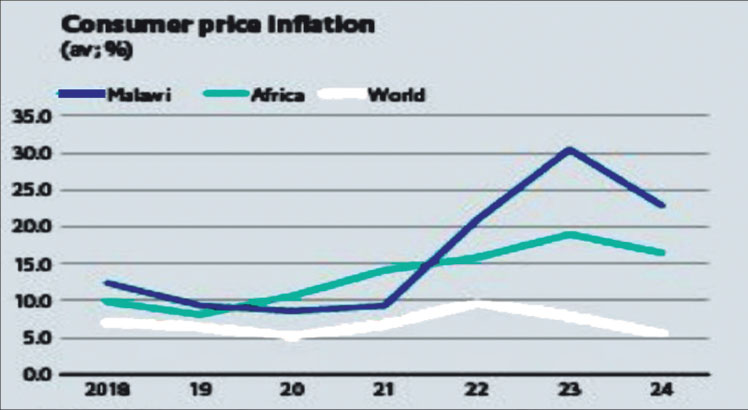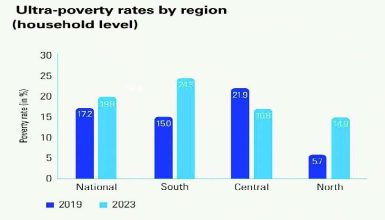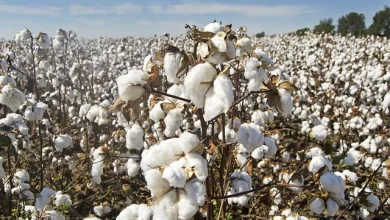Kwacha fall threatens Inflation outlook—EIU
The Economist Intelligence Unit (EIU) has warned that the continued depreciation of the kwacha will contribute to higher inflation rate throughout the year and in the medium-term.
Inflation rate, the rate of increase in prices of goods and services over a given period, has been rising over the past 12 months and is currently at 28.6 percent as of August, largely due to a rise in food and non-food prices.
In its third quarter country report for Malawi, EIU said although the rise in inflation has continued to be driven to a larger extent by high global food prices, the kwacha depreciation plays a bigger role in its movement.
The kwacha has been marginally depreciating since January this year when the Reserve Bank of Malawi (RBM) started conducting foreign exchange auctions to facilitate the discovery of a prevailing market-clearing exchange rate for thelocal unit against major currenciesto promote transparency in the determination of the exchange rate.
Since then, the RBM has held three auctions, with the last one held on August 29, resulting in the kwacha officially depreciating to K1 126 against the dollar.

But the EIU, a firm within the Economist Group of the United Kingdom, said the kwacha depreciation pushes up inflation to higher levels .
Reads the report: “Malawi’s protracted foreign currency shortage is limiting imports of food, fuel and raw materials, creating a supply-side shock to inflation, which we expect to outweigh monetary tightening efforts.
“Furthermore, the government approved an increase in water prices in June and we expect this to keep inflation high this year.”
The EIU, however, projects headline inflation to moderate from 2025 due to declining commodity prices, but remain high due to currency depreciation.
The 30.6 percent projection by the EIU is higher compared to RBM’s 29.5 percent.
In its third Monetary Policy Committee report, the central bank said it took into consideration persistent pressures on inflation such as supply and demand side related shocks.
Economic statistician Alick Nyasulu observed that a rise in inflation is expected given the current food situation coupled with external factors that traditionally affect inflation.
He said: “Fertiliser was not easily accessible to most farmers. This coupled with a shambolic Affordable Inputs Programme also affected farmers who could not access it at market prices.
“On the other hand, with Cyclone Freddy, crops were destroyed in the Southern Region, the most populous part of the country. All this will continue to put pressure on food prices and we should expect further surge in inflation.”
International Monetary Fund earlier also projected that the country’s 2023 annual inflation rate will be on the rise to close the year at an average 26 percent due to the rising commodity prices.
In its recent World Economic Outlook, the global lender underscored the need for the central bank to ensure that monetary policy focuses on keeping inflation down.
In forex auctions, authorised dealer banks bid to sell foreign exchange to the central bank at prices or exchange rates freely determined by each participating bank.






One Comment